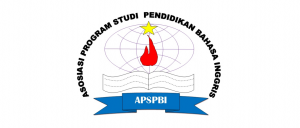An Analysis of the Usage of Probability Markers in Print Advertising of Hygiene and Cleaning Products
DOI:
https://doi.org/10.31002/metathesis.v6i1.53Keywords:
Advertising, Print Advertising, Probability Markers, Pledges, Hygiene and CleaningAbstract
Language plays a role in the meaning of consumer products in numerous ways. As a result, while establishing an advertising campaign for any ethnic group, language and media are crucial concerns. Surprisingly, English is being increasingly widely used in print advertising in countries like Indonesia, where English is not the predominant language of communication. This study aims to find the effect of using English and the usage of probability markers in triggering purchase intentions towards hygiene and cleaning related products due to Covid-19. This study adopted the mixed-method approach. The researchers distributed questionnaire adapted from Hornikx et al. (2010) to 150 participants and interviewed 15 people. The results showed that the participants preferred English version ads. In addition, when making an advertisement, advertisers must not only choose the appropriate language, but also the appropriate diction. Then, the participants agree that pledges as probability markers influenced their decision to purchase hygiene and cleaning products. Lastly, while designing advertisements, related to hygiene and cleaning products, the advertiser should pay special attention to the body-copy (writings).
Downloads
Published
How to Cite
Issue
Section
License
The copyright of the received article shall be assigned to the journal as the publisher of the journal. The intended copyright includes the right to publish the article in various forms (including reprints). The journal maintains the publishing rights to the published articles. Therefore, the author must submit a statement of the Copyright Transfer Agreement.

This work is licensed under a Creative Commons Attribution-ShareAlike 4.0 International License.
In line with the license, authors are allowed to share and adapt the material. In addition, the material must be given appropriate credit, provided with a link to the license, and indicated if changes were made. If authors remix, transform or build upon the material, authors must distribute their contributions under the same license as the original.



